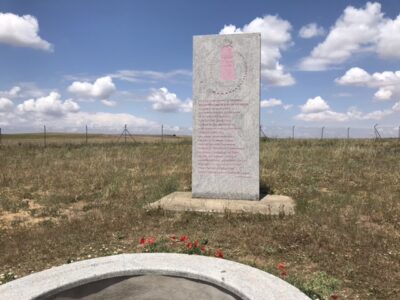Whatever your walk – teetotaler or connoisseur – wine is everywhere in Spain. The country has a very large wine culture. It is served as a feature in almost every meal but breakfast. Asking for something other than wine for dinner raises eyebrows. Even your fellow diners look at you with suspicion. I don’t know anything about it but I know what I like. So far I have not had anything – which is not much – that I like. A sommelier I am not.
The camino through wine country
It was inevitable that I would walk on the camino trail through a vineyard or two. Actually, in this part of the camino between Villanueva de Campean and Zamora, there are kilometers and kilometers of vineyards. A few towns have vino in their names in this part of Spain. On the way to Zamora, I stayed in the small town of El Cubo de Tierra del Vino or El Cubo de Vino (the wine cube).
Rain
On this phenomenon called the camino, I walked in all kinds of rain. A light mist is refreshing and even cooling. It means that a fog cloud is nearer the ground. Rocky surfaces become shiny and slippery. Then there are those hot, sunny treks with no shade trees nearby. I walk along the trail in cadence singing to myself, I wish it would rain. I would not mind even a light rain that gently rolls off the brim of my hat.
However, there are rain events that I dread. One is the steady rain that “escorts” me from one town to the other. With it comes either high humidity or chilliness, especially in high altitudes. Being unprepared results in a miserable walk. Fortunately, I carry an umbrella for the sun and the rain. It has definitely been my best friend here.
The trail surfaces combined with water and rain present challenges to a backpacking, trail shoe wearing pilgrim. Slippery rock, puddles of water stretched across the trail, and natural river crossings call for short stops to regain my walking composure. I have to figure out how I will safely pass without falling in the water. Or at the least, how to keep my shoes from getting soaked.
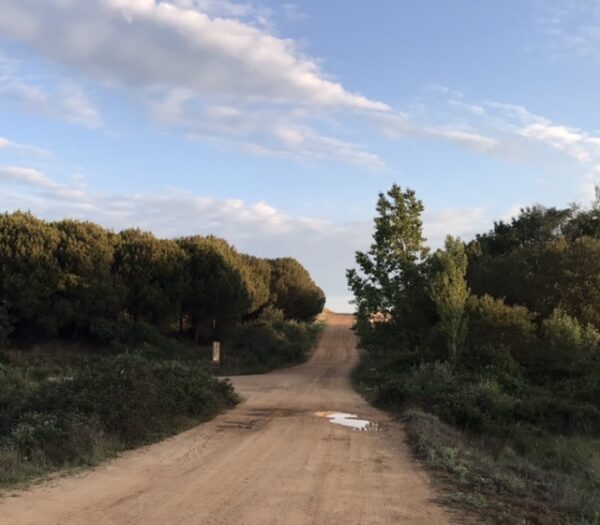
Rain water mixed with sand is soft and soothing to my feet. The sand can be too deep and too soft which slows me – an already slow walker – down. A mud laden walk through a vineyard is slippery and makes it difficult to get good traction on the ground. It is hard to walk confidently.
Sister of the mud
From the moment I saw this muddy trek through the vineyard I walked with a tense and stiff gait. I had to continually remind myself to relax and not think myself into a fall.
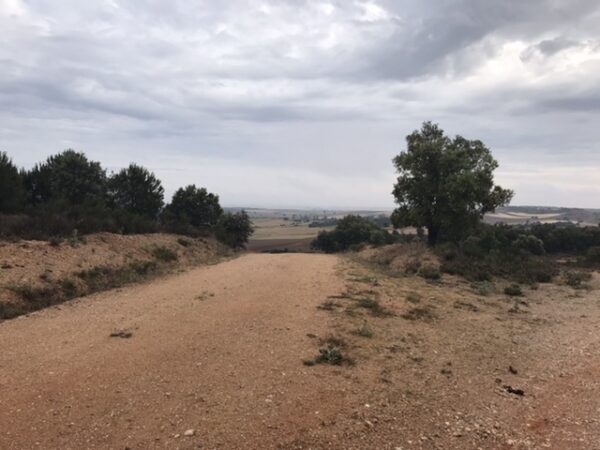
The lugs on my shoes – and the shoes – kept collecting mud that I knocked off with my walking stick. Then I had to walk through more of this:
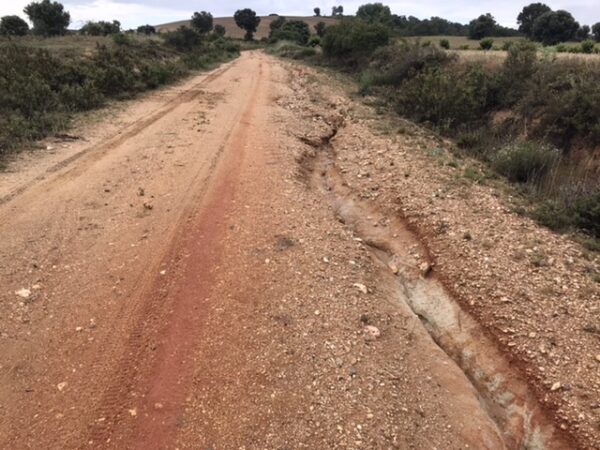
On this part of the trail, I was a sister of the mud. It persisted in claiming me. I had a few close calls, but did not fall!
Only to the extent that we are willing to expose ourselves over and over again to annihilation, can that which is indestructible in us be found. – Pema Chödrön
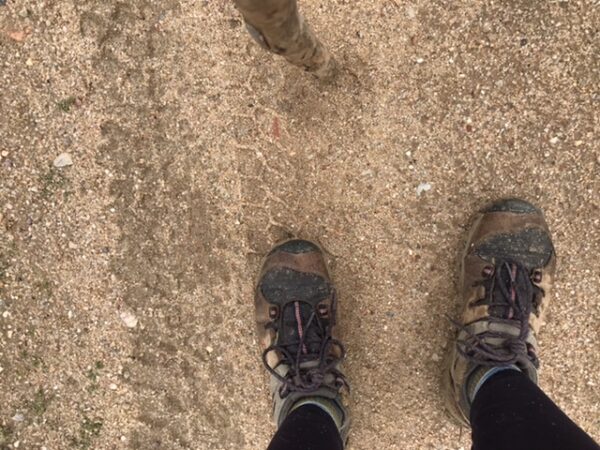
So, I am walking on a seemingly never ending ribbon of hillside. Vineyards are typically planted there. The plants get a lot of sun, as do I. Water drainage is crucial to keep the plants from drowning in floods. I, however, am stepping in and around that redirected floodwater on the camino path to get to Zamora. Somehow there’s synergy in that.
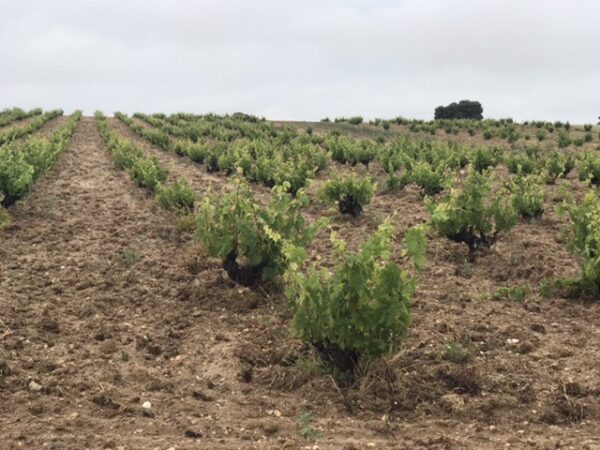
Lament of a vineyard
I know the soil is perfect for the purpose of nurturing grape plants. It is loose, scraggly, and not suitable for any other crops. Remember, it doesn’t hold water. The saying, “the worse the soil, the better the wine“, is appropriate here. The plants are pruned to force them to direct their energy into the grapes. Lemons are being made into lemonade — or rather grapes are being made into wine!
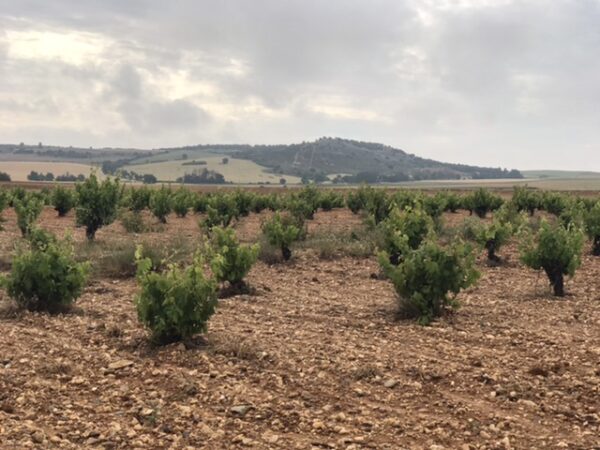
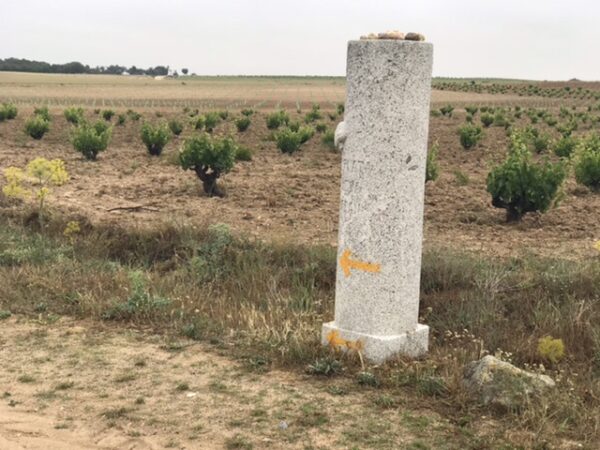
Stone pillars of Villanueva de Campeán
Tall, tubular granite pillars stand like beacons in these long, stretches of the camino path.
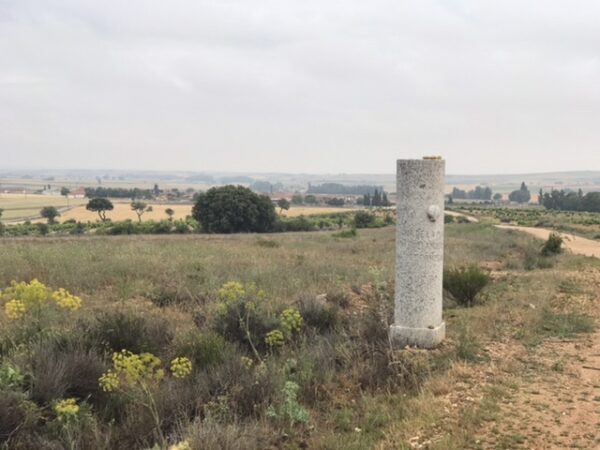
Still, they are marked with yellow arrows to point pilgrims on their way. Inscriptions on the markers are in English and Arabic.
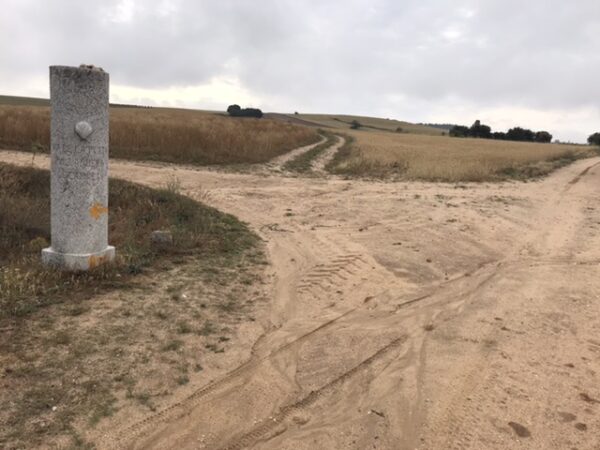
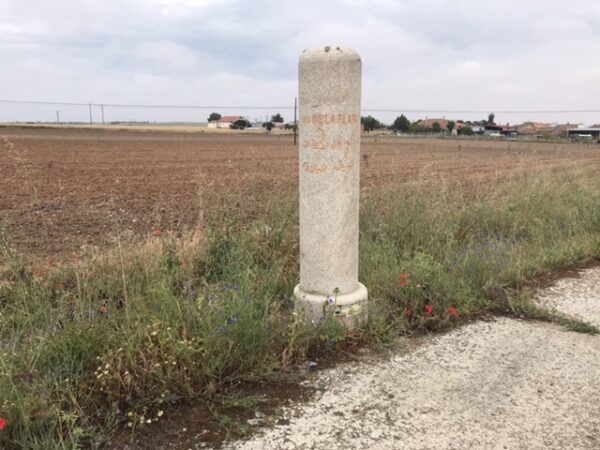
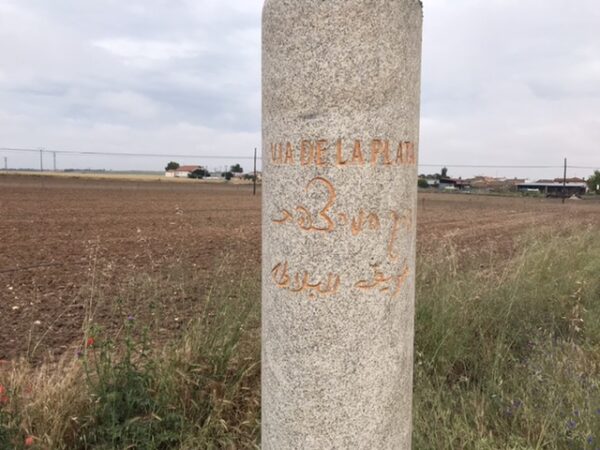
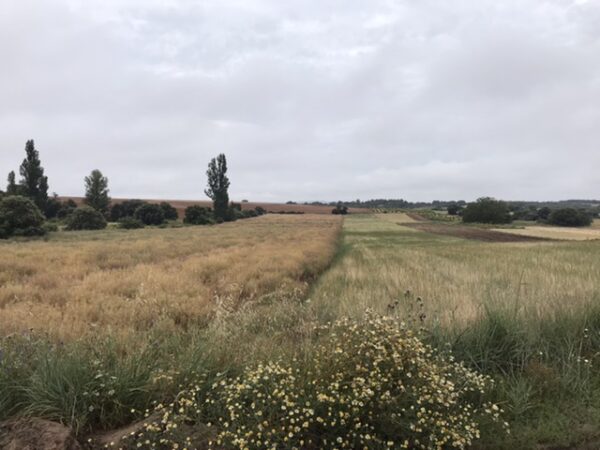
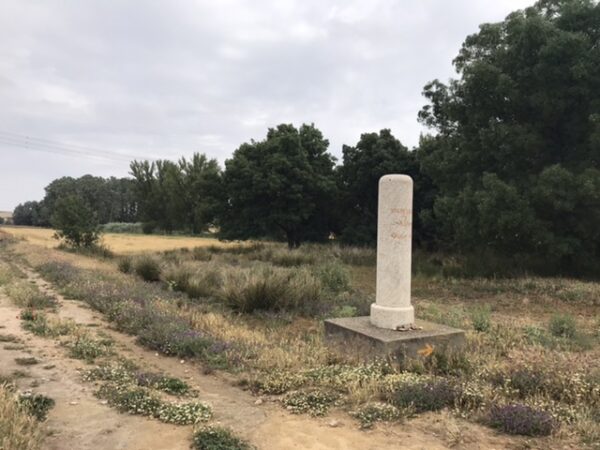
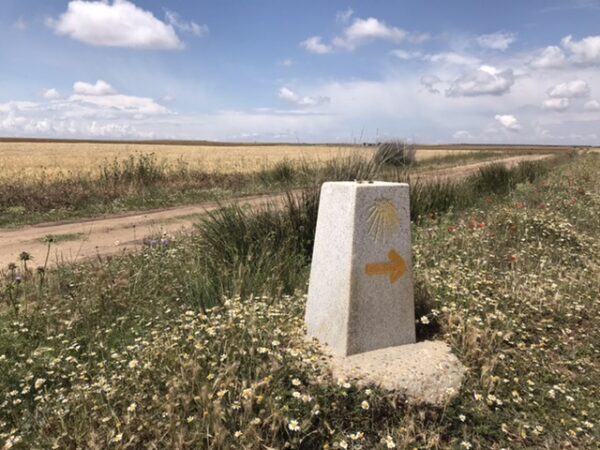
Pause the walk
Rising in the middle of the lonely landscape is a trio of granite monoliths. The arrangement is unexpected in this expanse of earth. What is it? I was inclined to continue walking and stay on the camino trail. This mysterious group was a little bit off the treeless camino path. My feet were suffering. I wanted to keep going. But I was drawn to the structures and did not want to leave these mammoth stones unturned.
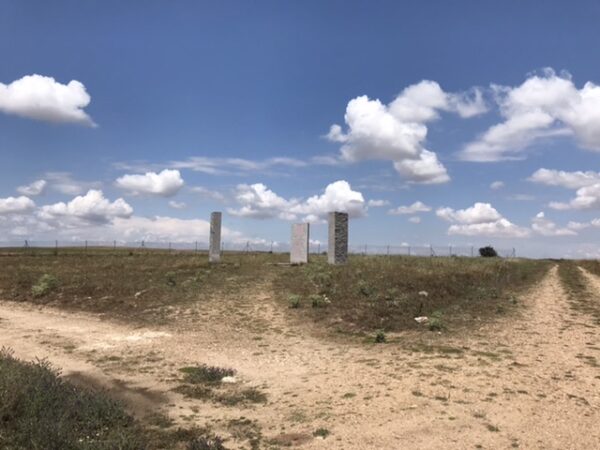
The Monolith of the Three Roads
This monument marks the confluence of three Jacobean (pilgrimage) routes:
• Via Mirandesa, a route of friendship and the Jewish path to freedom,
• Vía de la Plata, symbolizing a meeting point for cultures in peace,
• Vía de la Dalmacia, a reminder of a Muslim pilgrim’s way to San Francisco.
Together they symbolize peace and understanding.
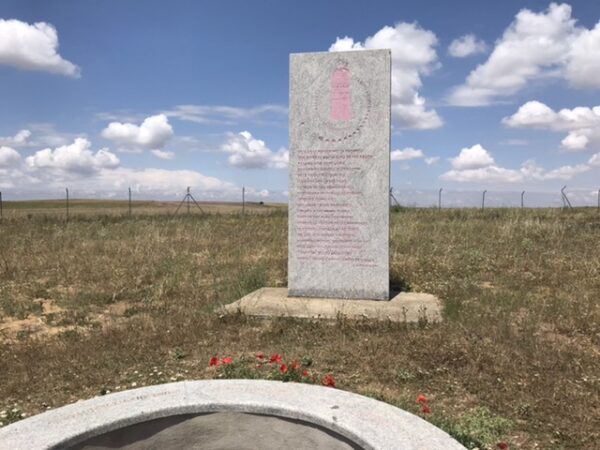
The last line in the inscription on the middle slab – the Monolith Via de la Plata – represents the unity powers of this camino and reads “Leave the promise here pilgrim and whatever your walk, you will have made the way before you arrive.”*
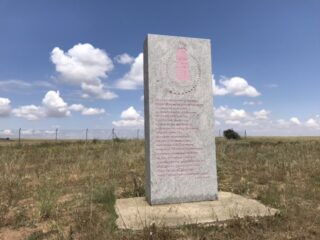
A circular granite “well” in the middle of the trio of monoliths allows pilgrims to place stones inside while making a wish.
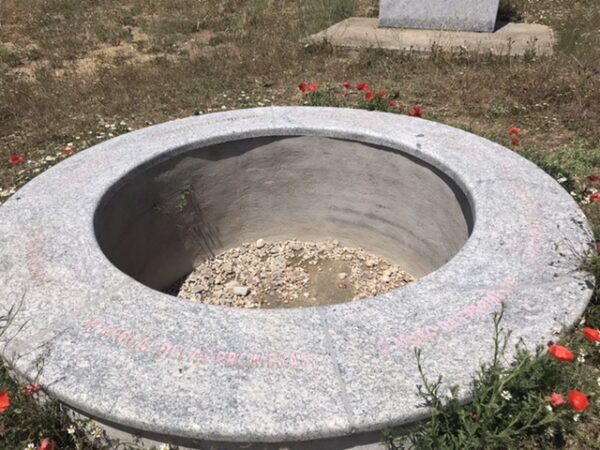
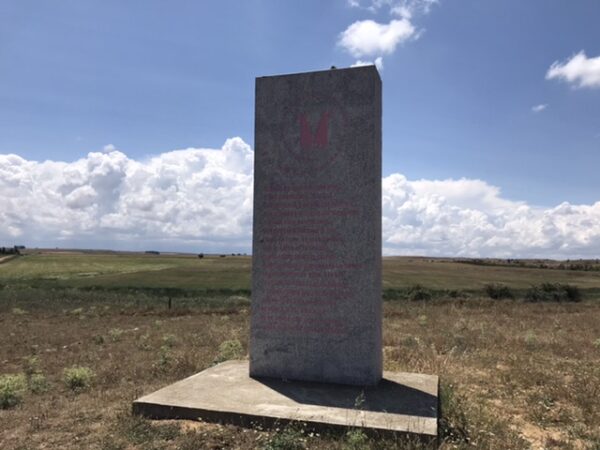
Whatever I walk
Most of the time I set my mind on my final destination for the day: an albergue or any place to rest my body and feet. Often I look straight ahead, actually not looking to the left or right. Of course, the wide expanse of earth and sky is there. Yes, at times I take it for granted. But really looking and seeing more takes effort. It is about mindfulness and staying in the present moment.
I know that I cannot see everything, do everything, or know everything just now. It takes time.
But I’ll get there.
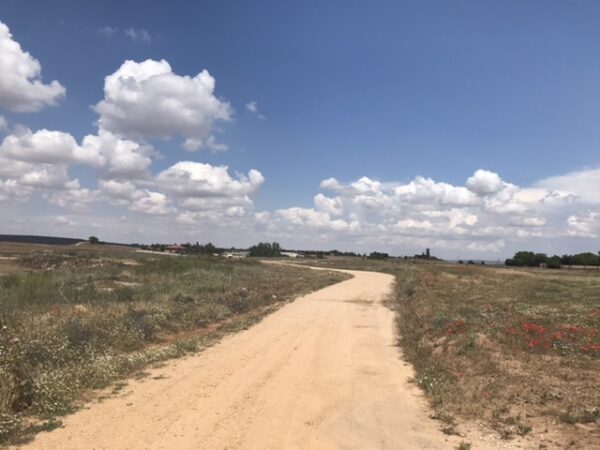
We see what we what to see and learn a lesson or two from that. I don’t know what I am to learn just yet but this place gets me close.
A dream feels like a big, faraway goal that is going to be difficult to achieve, and something that you might achieve much later in life, (but) in reality, what a dream is — or a dream realized is — is just putting one foot in front of the other on a daily basis. And if you put enough of those footprints together, eventually they become a path towards your dreams.
– Jessica Watkins**
Once more, I am continuing on the camino Via de la Plata to Santiago de Compostela.
____
Baadaye and Buen camino
Shirley J ♥️
____
*excerpt from poem by A. Ramos de Castro
**Jessica Watkins – NASA astronaut
My YouTube channel – Noire Pilgrim By Shirley J – features mini videos, snippets, and shorts from my pilgrimage on the camino.
This and several posts this summer will chronicle my pilgrimage in Spain where I am walking the 1400 kilometer-long camino Mozárabe, now on the Via de la Plata, northward to Santiago de Compostela. Read my announcement here.

